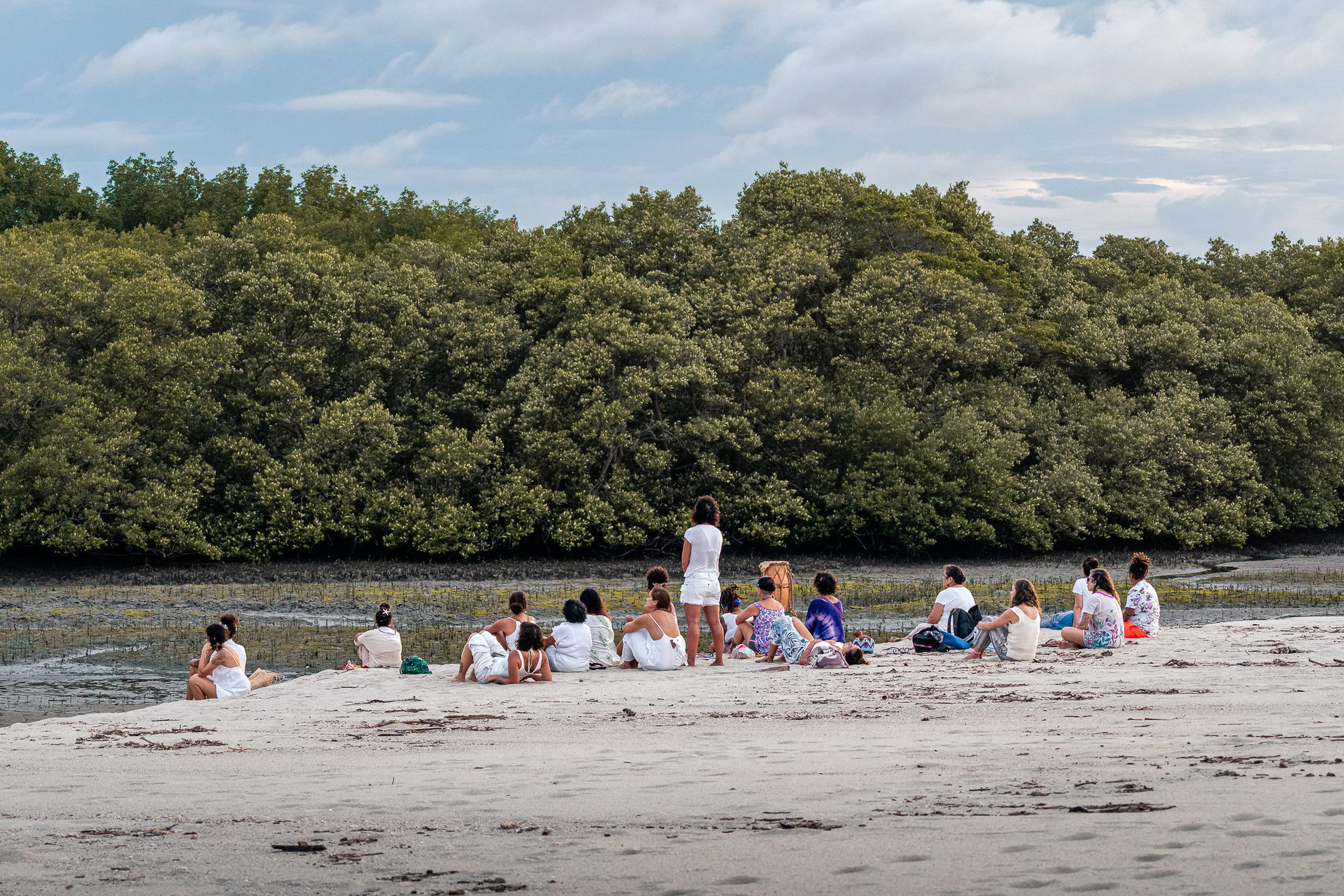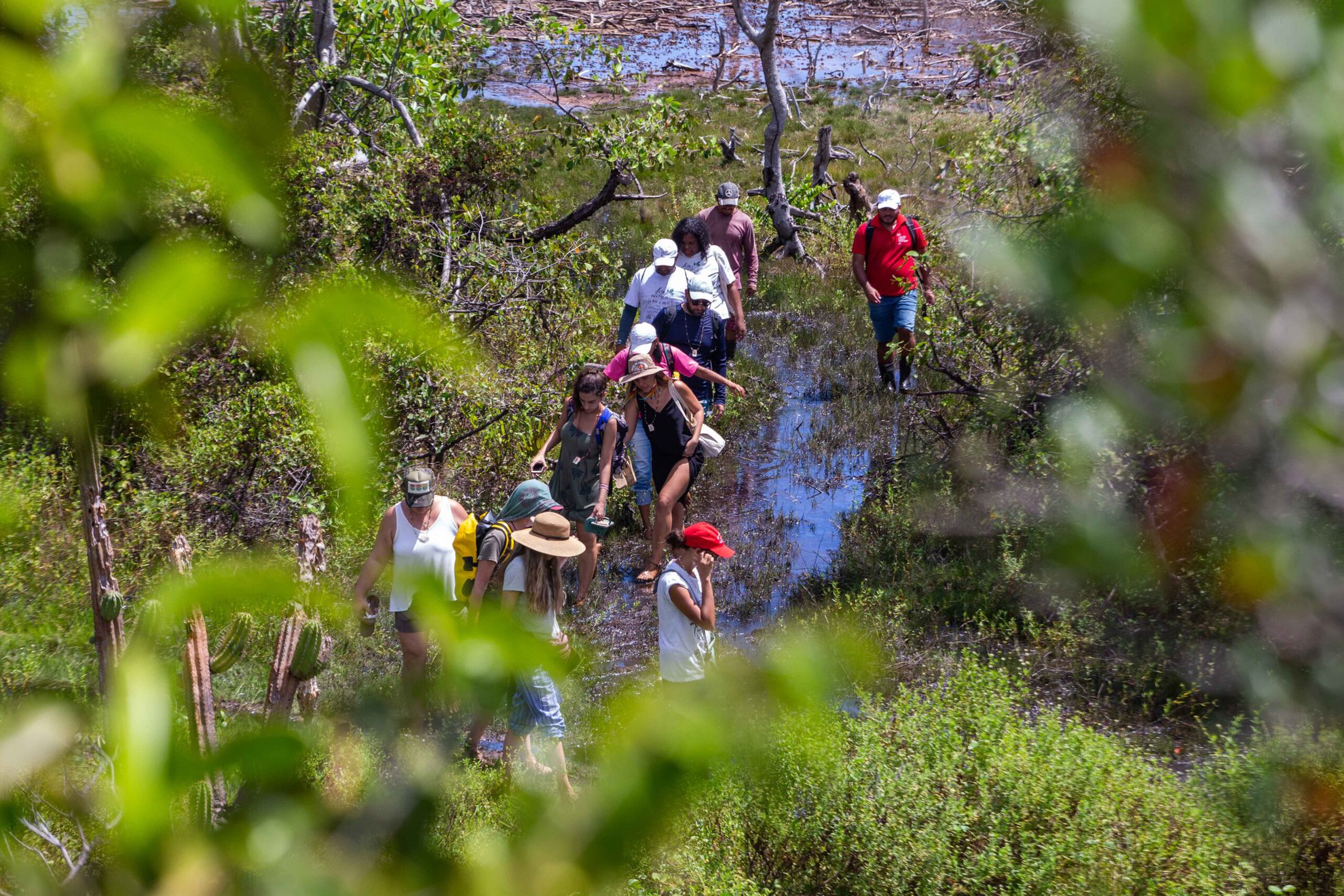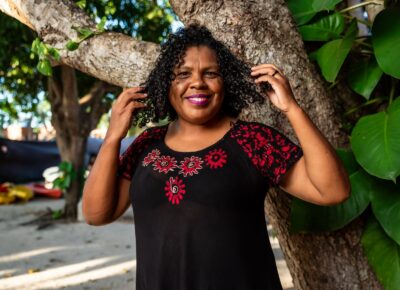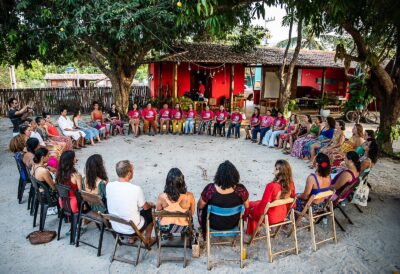THE TROPICS ARE SOME OF EARTH'S MOST BEAUTIFUL—AND MOST THREATENED— REGIONS.
Home to 80% of the planet's biodiversity, agricultural lands in the tropics are critical to feeding the 9 billion people projected to live on planet Earth by 2050. At the same time, 85% of the world's most impoverished people live in tropical countries. As a densely-populated, semi-arid region, climate change hits the tropics of the Brazilian northeast particularly hard. Already, communities are facing rising sea levels, soil salinization, increased temperatures, water scarcity, and other environmental challenges. Coastal development, ocean acidification, and warming water temperatures are killing vast amounts of the region’s precious mangroves.


WHAT'S AT STAKE
- Brazil’s mangroves hold 8.5% of all carbon stocks stored in mangroves worldwide, and they sequester 13.5% of the carbon sequestered in the world’s mangroves annually.
- An estimated 4.7 million tons of fish are lost annually as the nutrient supply to marine ecosystems dwindles with the death of mangroves.
- Tropical mangrove forests are incredible carbon sinks, sequestering up to 10 times more carbon than any land-based forests — yet we are losing them faster than any other type of forest. Half of the world’s mangroves have been lost in the last 50 years alone, and 25% of Brazilian mangrove forest cover has been lost in the past two decades.
OUR FOCUS
Women are at the forefront of solutions to these mounting challenges — educating children, promoting sustainable tourism, addressing pollution, cleaning beaches, and replanting mangroves.
In Brazil, WEA and Filha do Sol have launched women-led climate programming dedicated to accelerating women’s eco-enterprises and to restoring and protecting the mangroves of the Delta do Parnaíba. Our collaborative program aims to enhance climate adaptation, promote the well-being and community climate resilience, and sequester carbon.
The Parnaíba Delta Environmental Protection Area is a Federal Conservation Unit in the northeast of Brazil with unique ecological value and biodiversity. Within this 27-acre protected region, officially known as Resex Delta, a special mosaic of five traditional communities live in traditional relationship with the land and are sustained primarily by artisanal fishing and food gathering.

The women in the five villages play a key role in the local economy and also diversify income generation with their handicraft, in addition to the day-to-day care of the community and their families.
As climate change intensifies, communities in the region are impacted by water salinization, increased rates of disease, and other problems that affect their ability to live sustainably and maintain strong local economies.
The women of this marine reserve, have organized themselves to take on a historic role in the environmental, health, and education agenda of their villages, demanding better policies and effective participation in a political process which has traditionally only included men. The Women's Network of the Delta Resex is the first women-led organization in the region working to to influence the management process of their territory.
WEA's Women and Tropics program supports local leaders to continue to gain capacity and influence in how environmental challenges are managed in the Parnaiba Delta, and to advance the Women's Network for the Delta Resex's agenda, including:
- Mangrove regeneration projects
- Waste management in the delta
- Water scarcity issues - salinization and purification systems
- Sand dune conservation
- Traditional handcraft revitalization and eco-tourism
- Education and skill development opportunities

 The Women and Tropics Climate Entrepreneurship Program will support a cohort of 20-30 women leaders from Barra Grande and
The Women and Tropics Climate Entrepreneurship Program will support a cohort of 20-30 women leaders from Barra Grande and 